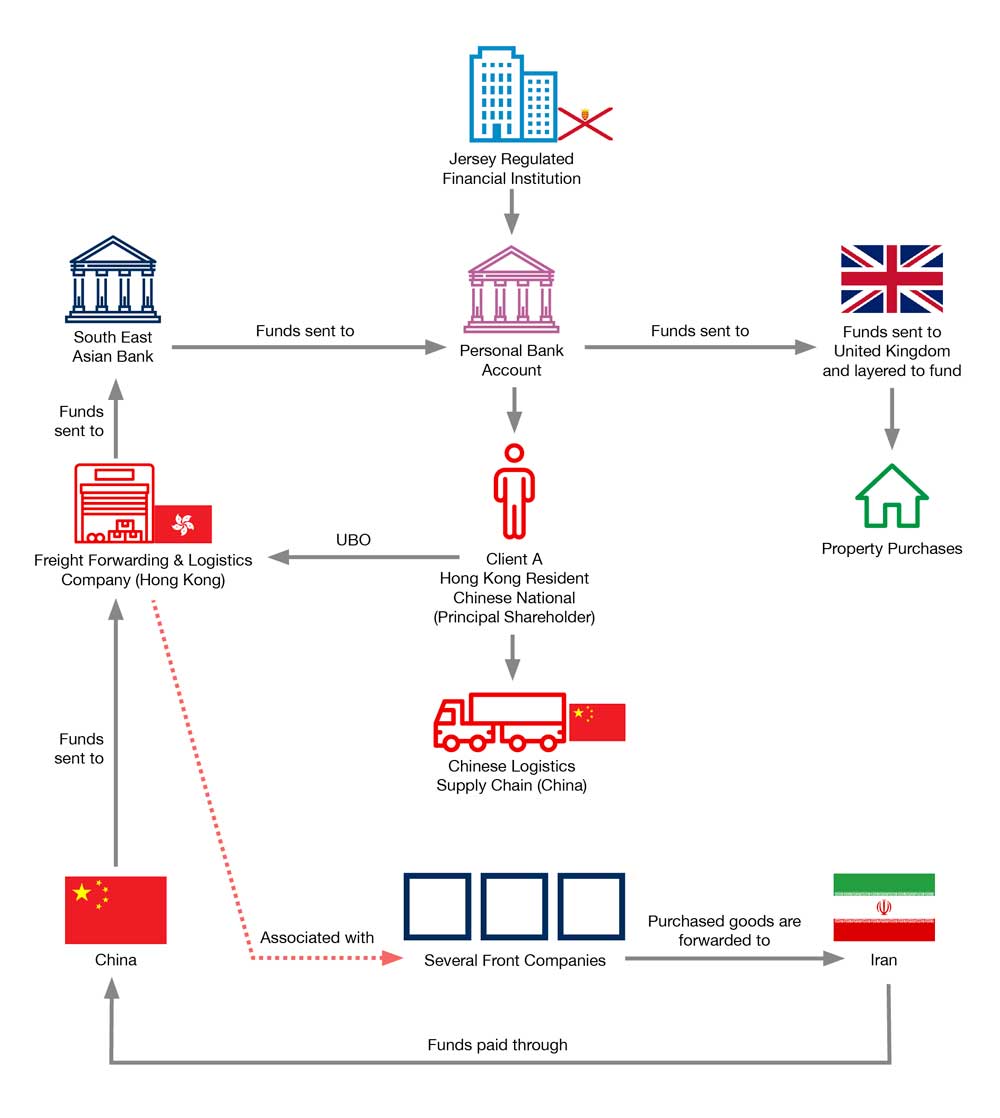A Jersey-regulated financial institution provided personal banking services to a Chinese national resident in Hong Kong, ‘Client A’. The purpose of the account was to protect savings, save for retirement, and invest overseas. Client A was the Ultimate Beneficial Owner (UBO) of a freight forwarding and logistics company based in Hong Kong with known links to China, ‘Company Z’. Client A was also a principal shareholder in another Chinese logistics supply chain entity based in China, providing e-commerce platforms, amongst other products.
A cross-border notification was received from a correspondent bank in Southeast Asia, indicating that it had been identified that Company Z had transacted with several alleged front companies that purchased goods on the global open market and ultimately forwarded them to Iran, in breach of Office of Foreign Assets Control (OFAC), Office of Financial Sanctions Implementation (OFSI), United Nations (UN), and Jersey Financial Sanctions Implementation Unit (FSIU) sanctions.
Funds from Company Z were received in Jersey from the Southeast Asian bank, which held the initial concerns regarding the links to the alleged front companies and sanctioned country. Additionally, it was identified that credits received into the account of Client A from his businesses were rapidly transferred out to either pay off loans or fund property purchases in the UK, further raising concerns.

PF refers to the provision of funds or resources to support the development, production, or acquisition of weapons of mass destruction (WMD), including nuclear, chemical, and biological weapons. This type of financing can occur through various means, such as legal or illegal financial transactions, support from state or non-state actors, and the exploitation of financial systems to disguise the true purpose of the funds.
Proliferation financing poses significant threats to global security, as it enables states or organisations to advance their capacities to develop harmful weaponry that can be used for aggression against other nations or in terrorist activities. To combat this threat, many countries and international organizations implement strict regulations and monitoring systems designed to prevent and disrupt the flow of funds intended for proliferation purposes. This includes measures such as enhanced due diligence by financial institutions and stricter compliance with anti-money laundering (AML) and counter-terrorism financing (CTF) policies.
We continually strive to enhance the quality of the products we produce, from our typologies to reports, Insight papers to training guides. However, we can only improve if you share your feedback with us about what you think about them. This is your chance to let us know and we appreciate it your feedback. Click the navy button below or scan the QR code.
Tell us what you think >.svg)